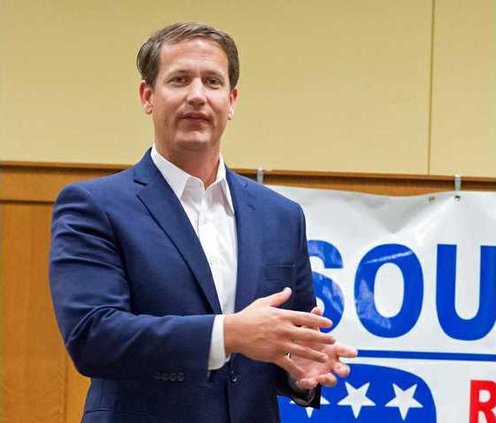Channeling President Donald Trump, state Sen. Michael Williams is basing his run for governor on a pitch to upend the “rigged” system of Georgia state government. Williams’ rise in Georgia party politics looks much like Trump’s own rise to the national political stage. He’s a business owner from Cumming who upset longtime incumbent Jack Murphy in a runoff by a dominating 32 percent in 2014. Williams owned a large, multistate chain of SportClips barbershops, but was trained as an accountant. He sold his business after the passage of the Affordable Care Act and decided to jump into the Georgia GOP through a self-funded campaign for a state Senate seat. It worked, and for three years Williams has represented Senate District 27 covering most of Forsyth County. Within a year of being elected, Williams became the first politician from the Peach State to endorse Trump early in the 2016 Republican primary.
Williams channels Trump in run for governor

